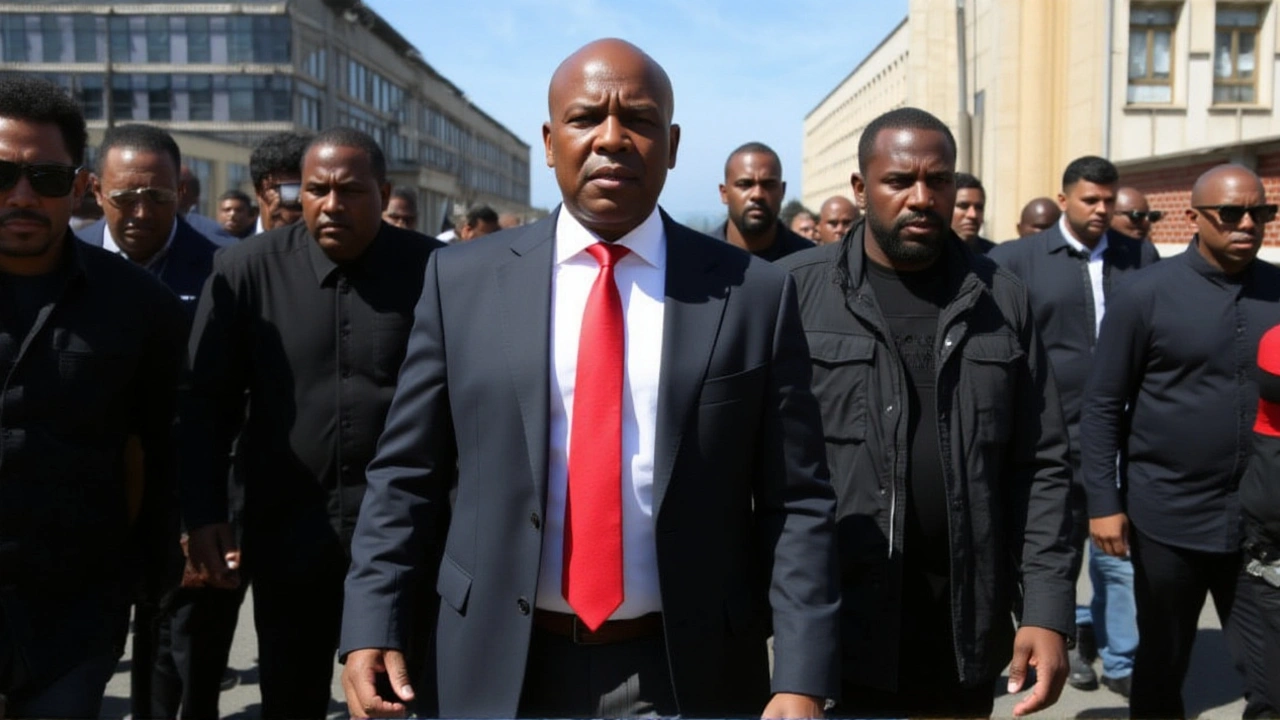Julius Malema – South Africa’s Bold Political Leader and EFF Founder
When you hear Julius Malema, a South African politician best known as the founder and leader of the Economic Freedom Fighters (EFF). Also known as Julius Sello Malema, he blends fiery rhetoric with grassroots mobilisation, shaping the nation’s political conversation for over a decade.
The Economic Freedom Fighters, a left‑leaning, nationalist party that champions land expropriation without compensation and wealth redistribution grew out of student protests and quickly became the third‑largest party in Parliament. Their platform intersects with broader South African politics, a landscape dominated by the African National Congress, opposition parties, and a vibrant civil‑society sector. One of the most heated debates today revolves around land reform, the process of redistributing land to historically disadvantaged citizens, a policy area where Malema’s voice often pushes the conversation toward more radical solutions.
Key themes surrounding Julius Malema
First, youth activism fuels much of the EFF’s energy. Young South Africans, frustrated by unemployment and inequality, see Malema as a champion who puts their concerns on the national agenda. Second, economic policy is a constant battleground; the party’s calls for nationalisation of mines and banks directly challenge the country’s existing capitalist framework. Third, media strategy matters – Malema’s use of social media, televised rallies and provocative slogans creates a feedback loop that amplifies his messaging and forces opponents to respond.
Semantic connections emerge when we map these ideas: Julius Malema ↔ Economic Freedom Fighters (the party he leads), Julius Malema ↔ land reform (the policy he champions), Economic Freedom Fighters ↔ South African politics (the arena they contest), youth activism ↔ Economic Freedom Fighters (the primary supporter base), and land reform ↔ South African politics (the defining national issue). These triples form the backbone of the coverage you’ll find below.
Understanding Malema’s impact also means looking at his confrontations with the African National Congress (ANC). While both parties claim to fight for the poor, their tactics differ sharply: the ANC leans on legacy and negotiated reforms, whereas the EFF pushes for immediate, sweeping change. This tension shapes parliamentary debates, street protests, and even courtroom battles over hate speech and incitement.
Beyond the political sphere, Malema’s influence seeps into culture and business. Brands, musicians, and entertainers either align with his rhetoric or distance themselves to avoid controversy. Such cross‑sector dynamics illustrate how a single figure can become a cultural barometer for resistance, ambition, and the limits of acceptable discourse in modern South Africa.
Below you’ll discover a range of recent stories that touch on these topics – from courtroom updates and policy proposals to how the EFF’s grassroots campaigns are reshaping election strategies. Dive in to see how Julius Malema continues to stir debate, drive activism, and shape the future of South African politics.

Julius Malema convicted, faces 15‑year prison term and parliamentary ban
Oct 3, 2025 / 18 Comments
Julius Malema, EFF leader, was convicted on Oct 1 2025 of firearm offenses, faces a minimum 15‑year term and an automatic parliamentary ban under South Africa’s Constitution.
READ MORERECENT POSTS
- Latest Developments in Federico Chiesa's Potential Transfer from Juventus
- 1923 Season 2 Premiere: Tensions Rise as Spencer Dutton's Journey Home Faces Delays
- 2024 Paris Olympics Opening Ceremony: A Historic and Unprecedented Start to the Summer Games
- Alphonso Davies Nears Transfer to Real Madrid Amid Advanced Negotiations with Bayern Munich
- Wallabies Triumph Over Wales in Thrilling Summer Rugby International Test
